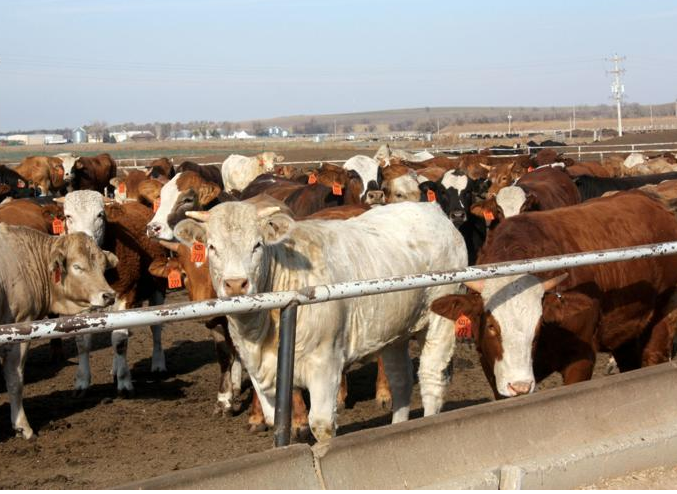K-State beef cattle experts offer ways to keep lactating cows in good body condition
MANHATTAN, Kan. — As people move through life stages, often their nutritional needs change depending on shifts in metabolism and activity levels.
In a similar way, beef cattle that have just calved and are in lactation have a high nutritional demand on their bodies. On a recent Cattle Chat podcast, experts at Kansas State University’s Beef Cattle Institute said those animals’ overall body condition needs to be managed accordingly.
“After calving the goal is for the cows to maintain their body condition before breeding, and if they are in a poor body condition it is going to be hard to get them to gain weight during this time because of the lactation demands on them,” said veterinarian Brad White.
Veterinarian Bob Larson and nutritionist Phillip Lancaster agree that the first step is to assess the quality of the hay while looking at the overall condition of the cowherd post-calving.
“The amount and type of supplementation will depend a lot on the quality of the hay because this is a time when the cows need a lot of energy and protein in their diet,” Larson said.
Lancaster added that the lack of rainfall over the winter is going to negatively impact how fast the green grass grows in the grazing pastures.
“With a looming drought, pasture green-up may be delayed or low and so we need to think about having some additional feed resources on hand,” Lancaster said. “The cattle may need to be supplemented longer into the breeding season, so they are able to maintain their body condition.”
Lancaster said the amount of supplement needed will vary depending on the needs of the herd, and he encouraged producers to feed high fiber supplements such as distiller’s grains, soybean hulls and wheat midds, as examples.
“When we think about a protein supplement, we are adding protein to compensate for the low protein in the hay, which only requires 1-2 pounds of supplement,” Lancaster said. “But if we want to maintain the body condition score, we may also need to supplement energy too, and so that may mean 5-6 pounds of supplement per head per day.”
Larson said that if the cows lose 50-100 pounds during this lactation period that could make them less likely to rebreed in a timely manner.
But White added that knowing what type of feed to supplement is key and encouraged producers to work with a nutritionist to come up with a plan.
White said: “If you supplement the herd with the wrong type or amount of feed, it may actually decrease the digestibility of hay and be counterproductive.”
To hear the full discussion, listen to the Cattle Chat podcast online.
-30-
FOR PRINT PUBLICATIONS: Links used in this story BCI Cattle Chat podcast, https://ksubci.org/2022/03/18/small-calves-peak-nutritional-needs-clean-up-bull-planning-manheimmia-on-environmental-surfaces/
K State Research and Extension is a short name for the Kansas State University Agricultural Experiment Station and Cooperative Extension Service, a program designed to generate and distribute useful knowledge for the well being of Kansans. Supported by county, state, federal and private funds, the program has county extension offices, experiment fields, area extension offices and regional research centers statewide. Its headquarters is on the K State campus in Manhattan. For more information, visit www.ksre.ksu.edu. K-State Research and Extension is an equal opportunity provider and employer.
Story by:
Lisa Moser
785-532-2010
[email protected]
More information:
Phillip Lancaster
785-532-6323
[email protected]
Bob Larson
785-532-4257
[email protected]
Brad White
785-532-4243
[email protected]



